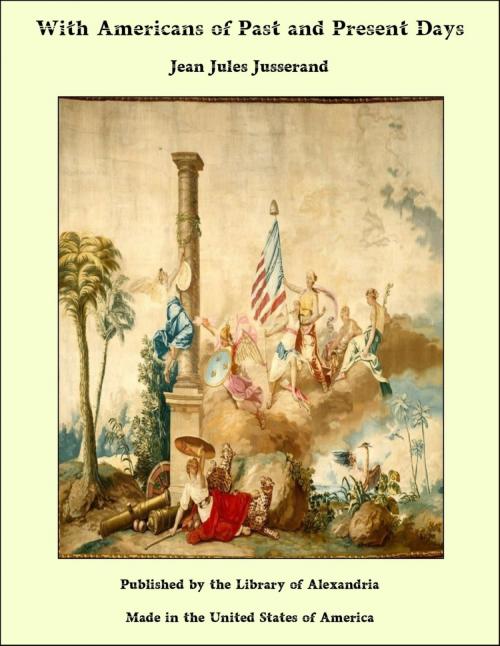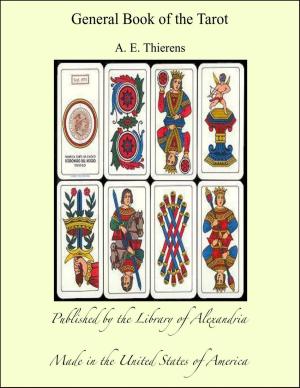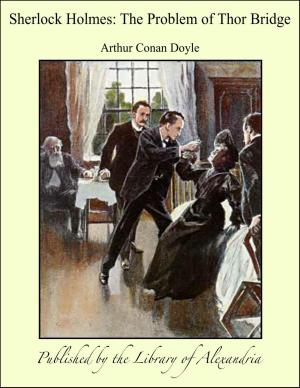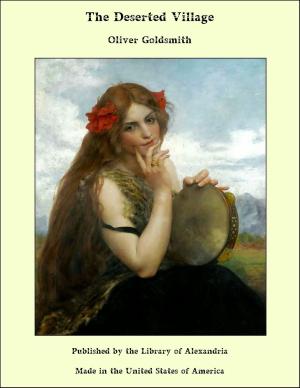With Americans of Past and Present Days
Nonfiction, Religion & Spirituality, New Age, History, Fiction & Literature| Author: | Jean Jules Jusserand | ISBN: | 9781465624352 |
| Publisher: | Library of Alexandria | Publication: | March 8, 2015 |
| Imprint: | Language: | English |
| Author: | Jean Jules Jusserand |
| ISBN: | 9781465624352 |
| Publisher: | Library of Alexandria |
| Publication: | March 8, 2015 |
| Imprint: | |
| Language: | English |
The American war had been for five years in progress; for two years a treaty of alliance, having as sole object "to maintain effectually the liberty, sovereignty, and independence, absolute and unlimited, of the United States," bound us French to the "insurgents"; successes and reverses followed each other in turn: Brooklyn, Trenton, Brandywine, Saratoga. Quite recently the news had come of the double victory at sea and on land of d'Estaing at Grenada, and Paris had been illuminated. The lights were scarcely out when news arrived of the disaster of the same d'Estaing at Savannah. All France felt anxious concerning the issue of a war which had lasted so long and whose end continued to be doubtful. When, in the first months of 1780, the report went about that a great definitive effort was to be attempted, that it was not this time a question of sending ships to the Americans, but of sending an army, and that the termination of the great drama was near, the enthusiasm was unbounded. All wanted to take part. There was a prospect of crossing the seas, of succoring a people fighting for a sacred cause, a people of whom all our volunteers praised the virtues; the people led by Washington, and represented in Paris by Franklin. An ardor as of crusaders inflamed the hearts of French youths, and the intended expedition was, in fact, the most important that France had launched beyond the seas since the distant time of the crusades. The cause was a truly sacred one, the cause of liberty, a magical word which then stirred the hearts of the many. "Why is liberty so rare?" Voltaire had said—"Because the most valuable of possessions." All those who were so lucky as to be allowed to take part in the expedition were convinced that they would witness memorable, perhaps unique, events, and it turned out, indeed, that they were to witness a campaign which, with the battle of Hastings, where the fate of England was decided in 1066, and that of Bouvines, which made of France in 1214 a great nation, was to be one of the three military actions with greatest consequences in which for the last thousand years the French had participated. A striking result of this state of mind is that an extraordinary number of those who went noted down their impressions, kept journals, drew sketches. Never perhaps during a military campaign was so much writing done, nor were so many albums filled with drawings.
The American war had been for five years in progress; for two years a treaty of alliance, having as sole object "to maintain effectually the liberty, sovereignty, and independence, absolute and unlimited, of the United States," bound us French to the "insurgents"; successes and reverses followed each other in turn: Brooklyn, Trenton, Brandywine, Saratoga. Quite recently the news had come of the double victory at sea and on land of d'Estaing at Grenada, and Paris had been illuminated. The lights were scarcely out when news arrived of the disaster of the same d'Estaing at Savannah. All France felt anxious concerning the issue of a war which had lasted so long and whose end continued to be doubtful. When, in the first months of 1780, the report went about that a great definitive effort was to be attempted, that it was not this time a question of sending ships to the Americans, but of sending an army, and that the termination of the great drama was near, the enthusiasm was unbounded. All wanted to take part. There was a prospect of crossing the seas, of succoring a people fighting for a sacred cause, a people of whom all our volunteers praised the virtues; the people led by Washington, and represented in Paris by Franklin. An ardor as of crusaders inflamed the hearts of French youths, and the intended expedition was, in fact, the most important that France had launched beyond the seas since the distant time of the crusades. The cause was a truly sacred one, the cause of liberty, a magical word which then stirred the hearts of the many. "Why is liberty so rare?" Voltaire had said—"Because the most valuable of possessions." All those who were so lucky as to be allowed to take part in the expedition were convinced that they would witness memorable, perhaps unique, events, and it turned out, indeed, that they were to witness a campaign which, with the battle of Hastings, where the fate of England was decided in 1066, and that of Bouvines, which made of France in 1214 a great nation, was to be one of the three military actions with greatest consequences in which for the last thousand years the French had participated. A striking result of this state of mind is that an extraordinary number of those who went noted down their impressions, kept journals, drew sketches. Never perhaps during a military campaign was so much writing done, nor were so many albums filled with drawings.















